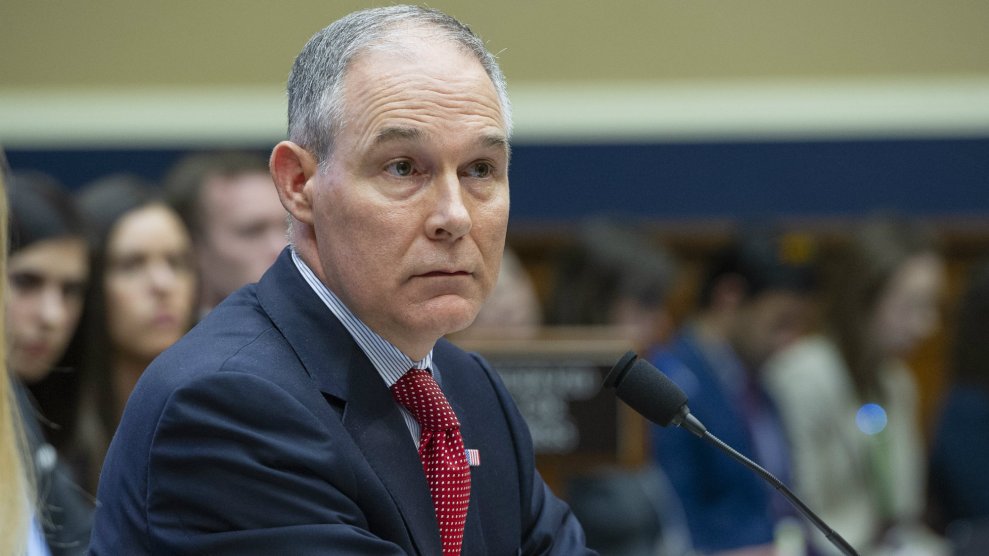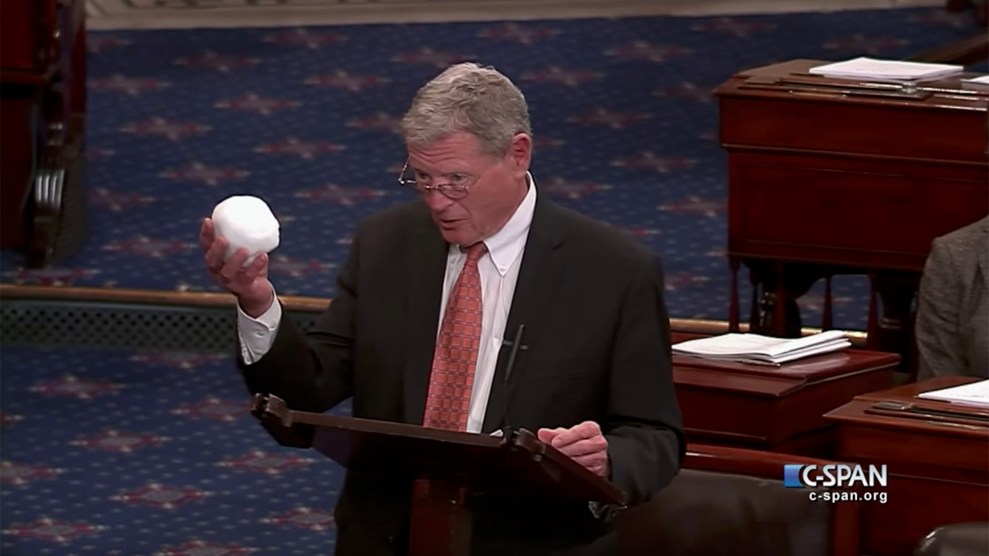
Ron Sachs/CNP/ZUMA
One of the reasons Scott Pruitt has probably survived this long at the Environmental Protection Agency is that he still has key Republican support in Congress. It was clear Thursday that House Republicans were still willing to defend him, when Pruitt appeared before the House Energy and Commerce and the House Appropriations subcommittees.
The hearings followed a pattern. Democrats grilled Pruitt on the ethical problems surrounding his administration—or spent their remaining time with monologues about his actions. Republicans were less interested in getting answers from Pruitt on what subcommittee chair Rep. John Shimkus (R-Ill.) called his “stewardship” of the agency, and spent more time focusing on the “policy” they agreed with. Despite Pruitt’s innumerable and well-documented ethical violations and questionable spending patterns, many Republicans in the hearing used their time to offer support for the embattled EPA head.
“It’s shameful today that this hearing has turned into a personal attack hearing and a shameful attempt to denigrate the work that’s being done at the EPA,” Rep. Bill Johnson (R-Ohio) said.
Rep. Gregg Harper, (R-Miss.) complained of the “political bloodsport to destroy anyone who is affiliated with this administration.”
Rep. Joe Barton (R-Texas) called Pruitt a “victim” of Washington politics. “If you can’t debate the policies in Washington, you attack the personality. And that’s what’s happening to you.”
“I apologize for the abrasiveness of some of my colleagues who would rather tarnish your reputation than address the problems facing the nation,” Rep. Jeff Duncan (R-S.C.) said after a heated line of questioning from the other side of the aisle.
And as the Huffington Post pointed out, Rep. David McKinley called the criticism a “classic display of innuendo and McCarthyism.”
“I have, high, high, high confidence in his personal integrity,” Rep. Tom Cole (R-Ok), who comes from Pruitt’s home state, added in the second hearing of the day.
In between the hearings, Shimkus told reporters Pruitt’s answers were “a little vague” but maintained that only the White House had the power to decide the EPA administrator’s fate.









